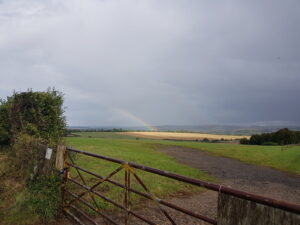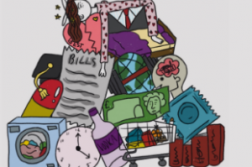I’ve got a cold.
It’s nothing major, just a grade A case of man-flu really, but I haven’t been ill for the best part of two years and I didn’t miss it. Still, society is going back to normal and the return of colds, cases of flu and other general respiratory nasties are pretty inevitable. It feels like a setback, and it’s even harder when the nights are drawing in and the window of milder weather is getting ever-smaller. Seeing some of the year’s last (warm) rays of sunshine from the wrong side of the back door is frustrating, but there’s some reassurance to be found in the fact that staying in and resting is the best thing you can do. I’ve had a peek at what the leading experts from sports science say, as well as coming up with a few tips for getting back on the road.
The general consensus is that going too hard, too soon is bad. At best, you’ll probably feel short of a few Duracells, but viral infection has also been linked with conditions like Unexplained Underperformance Syndrome (UUS), where lack of energy can persist for longer. This might be because of a prolonged inflammatory response that persists even once the original virus isn’t there, similar to other types of chronic fatigue including long Covid. Experts recommend being symptom-free for at least two weeks after getting Covid, although it’s less clear how long you should wait after colds or cases of flu. Either way, vigorous exercise takes away vital energy from the immune system’s response to infection, so it’s a good idea to err on the side of caution.
Tip 1: Take it easy.
I find it pretty hard to drag myself out of bed for a 9 am Parkrun start when healthy, so you probably won’t want to bust one out whilst feeling like your head’s going to explode. The temptation can however come back once you reach the weird post-runny nose phase where you can do a great Vin Diesel impression (‘it’s about family’). I’ve found short walks a nice way to start building things up whilst still getting out of the house, and they’re also good for gauging how much energy you really have in the tank. Flat cycles can be good too, although it might be a good idea to set a maximum gear before you go so you don’t get tempted to zoom off. Best to hold the running and gym sessions until you’re really sure you’re up to them though.
Tip 2: Look after yourself.
Make sure you keep comfortable whilst you’re feeling at your worst. Eat that doughnut, stay warm, watch that extra episode. Don’t make yourself feel any more miserable than the microscopic losers in your upper respiratory tract already are.
Tip 3: Stay rational.
I went for a run the morning before my sore throat arrived and first ventured out for a short sanity cycle three days later, so I didn’t really miss out on much. Even if you’re off for longer, you’re probably not going to notice that time away after a couple of months, let alone in the long-term. Running shoes, bikes and club friends are still going to be around for you when you get back to full fitness and they probably don’t want your manky sneeze droplets.
Tip 4: Don’t worry about everyone else.
It’s easy to compare yourself to others when things like time, distance and speed are so easy to measure, but unless you’re a top-level competitor, you’re almost always a loser. That’s even more true when everyone else (everyone that hasn’t also got fresher’s flu at least) has a virally induced head-start. It might be useful to steer clear of platforms like Strava until you’re back in action to avoid the fitness FOMO, and you’ll have the satisfaction of seeing what everyone else has been up to in one big chunk. When you do head back out, enjoy your surroundings, whether you’re taking in the city, countryside or just Jubilee Sports Centre.

Tip 5: Don’t swim with a blocked nose.
I haven’t trawled the literature databases for this one, but anecdotal evidence is enough to go by just this once. Don’t go swimming with a blocked nose. Not if it’s both nostrils, not if it’s one nostril, not even if there’s a bit of residual mucus. Just don’t do it.
Hopefully, that’s some handy advice to get you through the flu season. Stay healthy, keep testing and see you at that Parkrun!



